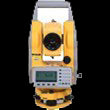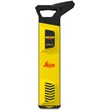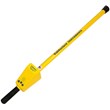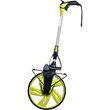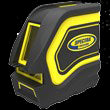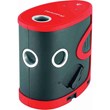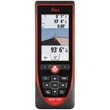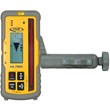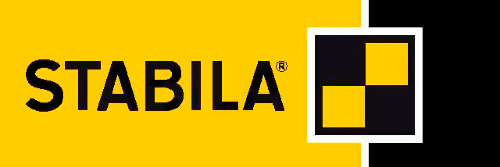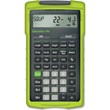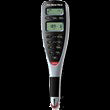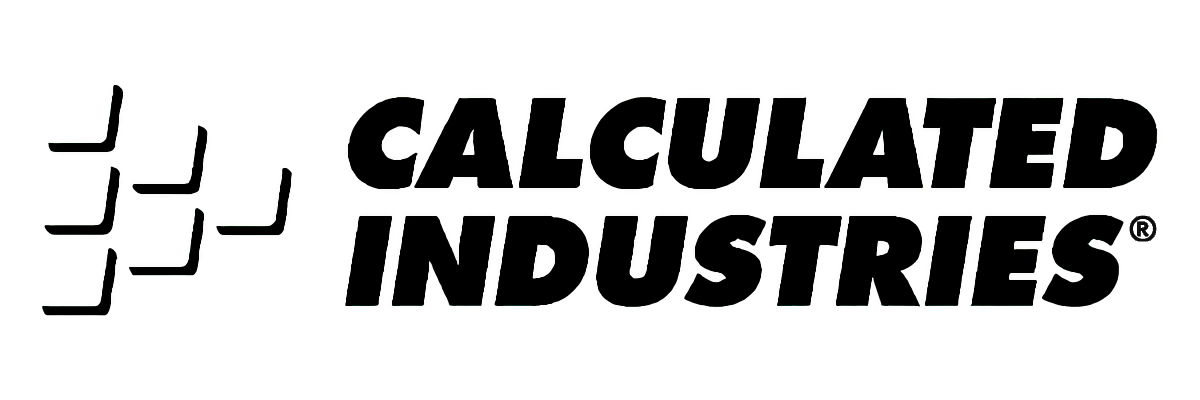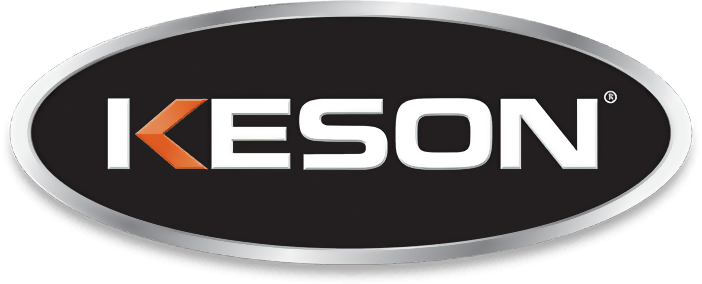Automatic Levels
Filters
-
A30 Auto Level
STONEXNo reviewsOriginal price List Price: $550.00You Save: $110.00Original price $550.00 - Original price $550.00Original price List Price: $550.00Current price $440.00$440.00 - $440.00Current price $440.00| /- Magnification: 28x
- Operating Range: 15 Feet
- Protection Class: IP66
Original price List Price: $550.00You Save: $110.00Original price $550.00 - Original price $550.00Original price List Price: $550.00Current price $440.00$440.00 - $440.00Current price $440.00| / -
STAL 1000 / 1100 Optical Auto Level
STONEXNo reviewsOriginal price $340.00 - Original price $360.00You Save: $68.00Original price $340.00 - Original price $360.00Original price List Price: $340.00$272.00 - $288.00$272.00 - $288.00Current price $272.00| /- Magnification: IP54
- Protection Class: IP54
Original price $340.00 - Original price $360.00You Save: $68.00Original price $340.00 - Original price $360.00Original price List Price: $340.00$272.00 - $288.00$272.00 - $288.00Current price $272.00| /
AUTOMATIC LEVEL BUYER'S GUIDE

An auto level, also known as an automatic level, is an essential surveying equipment for professionals in construction, engineering, and land surveying. It provides unmatched accuracy for measuring elevations, ensuring precise leveling for job sites, roadwork, and landscaping projects. Whether you’re a contractor, civil engineer, or landscape surveyor, investing in a reliable auto level can streamline workflows, minimize errors and improve productivity.
This guide explains:
- How auto levels work
- The types of auto levels
- Their key features
What is an Auto Level and How does it work?
An auto level is a precision optical instrument designed to automatically keep its line of sight perfectly level. This is achieved through an internal compensator that self-corrects minor vibrations or uneven positioning, making setup faster and results more accurate.
How it Works
- Setup: Mount the instrument on a tripod and adjust the bubble level for pre-leveling.
- Automatic Adjustment: The internal compensator ensures the line of sight stays perfectly horizontal.
- Observation: The user uses a telescope to sight a leveling rod, and the readings are noted.
Auto levels are built to withstand tough field conditions, making them ideal for construction projects, boundary mapping and infrastructure development.
Key Components of an Automatic Level

| Component | Description |
| Telescope | Provides magnification for precise targeting. Includes an objective lens, eyepiece, and crosshairs |
| Automatic Compensator | Self-adjusts the line of sight, correcting for small shifts caused by uneven terrain or vibrations. |
| Focusing Knob | Fine-tunes image clarity for accurate targeting, even in challenging lighting conditions. |
| Circular Bubble Level | Aids in pre-leveling the instrument manually before the compensator takes over. |
| Leveling Screws | Allow micro-adjustments to align the instrument accurately during setup. |
| Tripod Mount | Secures the auto level firmly to a tripod for stability. |
Types of Surveying Levels
There are three main types of surveying levels:
Dumpy Level
Traditional or manual instrument that requires manual leveling. Smaller firms and individual surveyors rely on dumpy levels because of their durability, cost effectiveness and reliability.
Auto Level/Self-Leveling Level
It features an internal compensator that automatically corrects the line of sight. Self-leveling auto levels are faster to setup and reduce human error, making them ideal for medium to large projects.
Digital Level
Digital levels display measurements electronically on a screen. They eliminate reading errors and improve efficiency, making them ideal for high-precision tasks.
Applications of Auto Levels
Auto level is a versatile surveying instrument used across various industries:
Construction: : Foundation leveling, roadwork, grading, and drainage planning.
Land Surveying: Site preparation, boundary mapping, and elevation check.
Infrastructure Development:Bridge construction, pipeline alignment, and large-area leveling.
How to Use an Auto Level
Follow these steps to operate a theodolite effectively. For detailed guidance, be sure to check the product manual or consider expert training if required.
- Setup the Tripod: Place the tripod on a stable ground and mount the auto level properly.
- Pre-level the instrument: Adjust the circular bubble level using the tripod legs and leveling screws until the bubble is centered.
- Focus the Telescope: Look through the eyepiece and adjust it to sharpen the crosshairs.
- Sight the Target: Align the telescope with the leveling rod and use the focusing knob to sharpen the target image.
- Take Measurements: Record the leveling rod reading at the crosshair intersection.
The internal compensator will maintain a perfectly horizontal line of sight throughout the process.
How to Choose Automatic Level
Selecting the right auto level depends on your specific needs and project requirements, consider the following factors when deciding on an automatic level:
1. Magnification Power: Auto levels typically offer magnification between 20x to 32x. Higher the magnification, sharper and more detailed views over long distances. For example, the Nikon Auto Level delivers excellent clarity and sharp targeting over long distances, ideal for large-scale surveys.
2. Accuracy: High-end models, like the Leica Auto Level, provide ±0.7mm per 1km double-run leveling accuracy, making them perfect for precision-demanding tasks. Standard models offer accuracy within ±2mm at 100m, sufficient for general construction tasks.
3. Automatic Compensator: The compensator ensures the line of sight remains level or stable, even in windy conditions or uneven terrains. Models with magnetic damping improve stability during vibrations.
4. Focus Distance: Instruments like the Sokkia B40A provide a short minimum focus distance of 7.9 inches, making them suitable for confined spaces.
5. Durability: Evaluate your budget to balance cost with functionality. Optical theodolites are generally more affordable, making them suitable for basic projects, while digital models deliver enhanced accuracy and long-term value.
Top-Rated Automatic Level
To simplify your search, we’ve highlighted three auto level models that offer excellent performance, durability and accuracy:
1. SitePro 25-SK24X Pro Automatic Level
The SitePro SK24X is a high-performing auto level designed for professionals seeking precision and reliability.
Key Features
- 24x magnification power
- Accuracy of ±1/16" at 150 ft (±1.5mm @ 45m)
- 300 ft (90m) working range with a 1° 30' field of view
- 360° graduated horizontal circle for layout applications
- Robust design for harsh job site environments
2. Leica NA2-32X Universal Automatic Level
The Leica NA2-32X is a premium automatic level tailored for high-precision surveying tasks and excels in first-order leveling.
Key Features
- 32x magnification power
- Push-button compensator check for quick stability verification
- Optional micrometer for readings to 0.1mm and 0.01mm by estimation
- Accuracy of 0.7mm per 1km double-run leveling
- Factory-calibrated for optimal performance
3. Spectra Precision AL28M Automatic Level
The Spectra AL28M automatic level offers 28x magnification and a magnetic compensator for precise leveling, even in high-vibration environments. Built for durability, it features rugged metal housing, water resistance, and bright optics for low-light conditions. Ideal for cut/fill measurements, alignment tasks, and area leveling, it’s a reliable choice for tough job sites.
Key Features
- 28x magnification power
- Magnetic dampened compensator for reliable performance in high-vibration areas
- Accuracy of ±1.5mm per 1 km of double-run leveling
- Built-in stadia lines for simple distance measurement
- Water resistance for all-weather use
Automatic Level FAQs
Q: Do I need leveling blocks with an auto level?
A: Leveling blocks are not typically required. However, they can help stabilize the tripod on extremely uneven terrain, ensuring a rough level.
Q: How do I calibrate an auto level?
Calibration involves placing the instrument on a stable surface and verifying its accuracy against a known level or benchmark. Refer to the manufacturer’s manual for specific instructions.
Q: How much do an auto level cost?
Depending on the features, technical specifications, and brand, Auto Level prices can range from $200 for the most basic models to as high as $3000 for models with the highest possible accuracy and magnification range.
Q: How many poeple do you need to operate an auto level?
Two - One person to set up and operate the auto level. The other to hold the leveling rod and record measurements.
Q: How to check the level of an auto level?
Make sure the bubble in the leveling vial is centered using the leveling screws. Sight a fixed target and rotate the instrument 180 degrees. If the target remains aligned, the auto level is calibrated correctly.
Q: What is the difference between a dumpy level and an auto level?
Dumpy levels require manual leveling using screws and a bubble level. Auto levels, on the other hand, use an internal compensator to automatically adjust the line of sight, making them faster and easier to set up.
Q: What is the difference between a builder's level and an auto level?
A builder’s level requires manual adjustments, while an auto level uses an internal compensator to self-level automatically, ensuring greater accuracy. It has a rotatable telescope to sight targets, making it suitable for general construction tasks like grading, leveling foundations, or layout work. Auto levels are ideal for projects requiring precision, such as surveying, roadwork, and drainage planning.
Q: What is the difference between a theodolite and an auto level?
Auto levels focus on horizontal leveling for elevation measurements while theodolites are designed for measuring both horizontal and vertical angles. Theodolites are perfect for advanced surveying tasks, whereas auto levels are ideal for elevation measurements and leveling.
Q: What is the difference between a transit level and an auto level?
Auto levels focus on horizontal leveling, providing accurate elevation measurements. Transit levels measure both horizontal and vertical angles, making them versatile for alignment tasks.
Maintenance and Care
Proper maintenance extends the life of automatic level and ensures consistent accuracy.
- Always clean the optical lens with a microfiber cloth to prevent scratches and maintain clarity. Avoid using harsh cleaning agents that could damage the lens coating.
- Store the auto level in its protective case when not in use. This prevents exposure to dust, moisture and accidents.
- Perform regular calibration to ensure the instrument's accuracy.
- After use in wet or dusty conditions, wipe the instrument to remove any residue and prevent debrics buildup.
- Avoid extreme temperature exposure to protect the internal components.
At Tiger Supplies, we carry all top brands of auto levels such as Spectra Precision, Leica or CST Berger, giving you the assurance of quality and reliability. Explore our range of theodolites or consult with our specialists for tailored advice to meet your project requirements.

